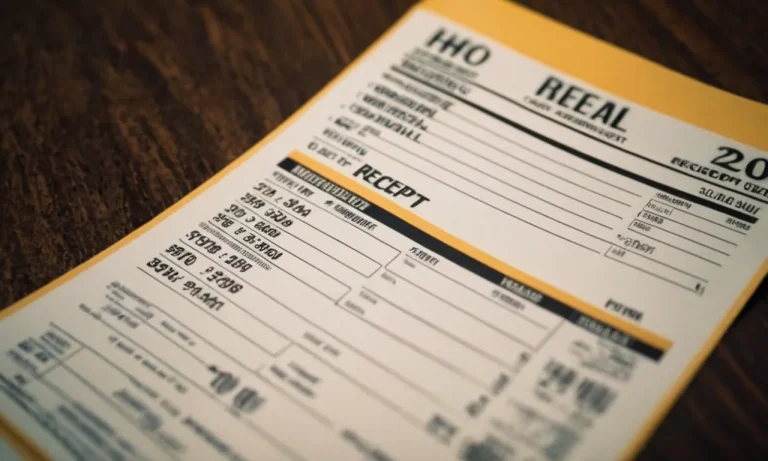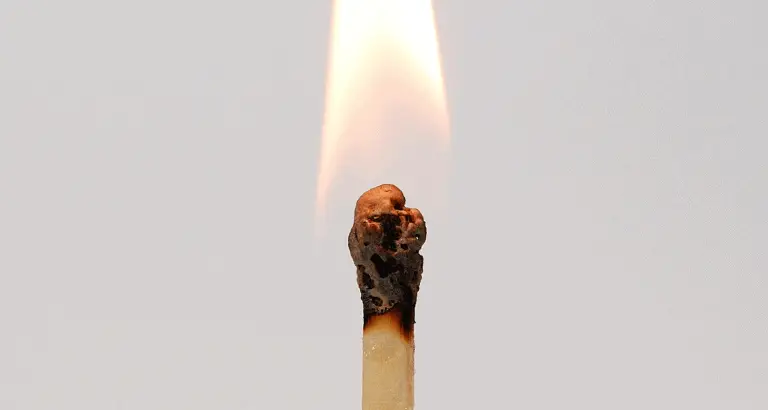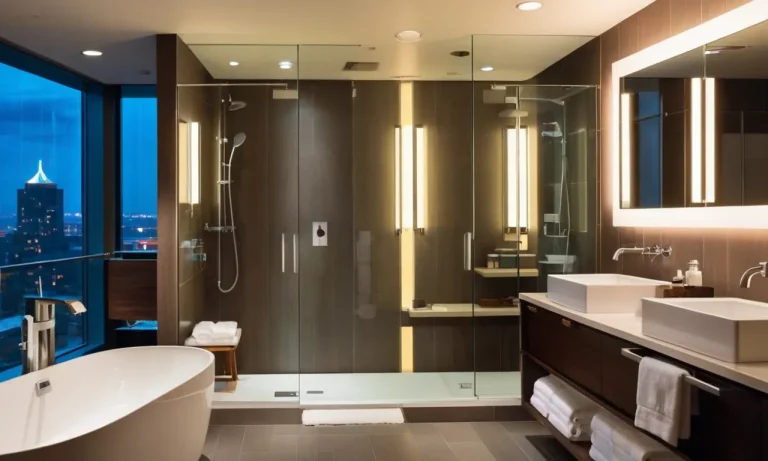Hotel Accused Me of Smoking: What to Do and How to Avoid Charges
Have you ever been accused of smoking in a non-smoking hotel room, only to face hefty fines or cleaning charges? It’s a frustrating situation that can leave you feeling powerless and unfairly treated.
If you’re short on time, here’s a quick answer to your question: If a hotel accuses you of smoking in a non-smoking room, remain calm, gather evidence to prove your innocence, and follow the proper procedures to dispute the charges.
Prevention is also key, so take precautions to avoid any misunderstandings.
In this comprehensive guide, we’ll explore what to do if a hotel accuses you of smoking, how to prevent such situations, and the legal rights and responsibilities of both parties. We’ll also provide tips on handling disputes effectively and protecting yourself from unfair charges.
Understanding Hotel Smoking Policies
Non-smoking room regulations
Most hotels have designated their rooms as non-smoking areas, and for good reason. Smoke can linger in fabrics, carpets, and furniture, creating an unpleasant experience for future guests. According to a survey by the American Hotel & Lodging Association, over 94% of hotels in the United States have implemented some form of non-smoking policy (source).
Hotels take these policies seriously, as they aim to provide a clean and comfortable environment for all guests.
When you book a non-smoking room, you’re essentially agreeing to the hotel’s terms and conditions, which typically prohibit smoking inside the room or on the premises. Failure to comply with these rules can result in hefty penalties or even legal consequences.
It’s crucial to respect these policies, not only for your own well-being but also for the comfort of others.
Penalties for violating smoking policies
Hotels have the right to impose penalties on guests who violate their non-smoking policies. These penalties can range from a cleaning fee (typically ranging from $250 to $500 or more) to the full cost of deep cleaning the room or even eviction from the premises.
Some hotels may also charge your credit card on file or require you to pay the fee upfront before checking out.
In extreme cases, hotels can pursue legal action against guests who cause excessive damage or refuse to pay the imposed fines. This can lead to lawsuits and potential criminal charges, such as vandalism or destruction of property.
It’s essential to understand that smoking in a non-smoking room is a breach of contract, and hotels have the legal right to enforce their policies.
Common reasons for false accusations
While hotels strive to enforce their non-smoking policies fairly, there have been instances where guests have been falsely accused of smoking in their rooms. Some common reasons for false accusations include:
- Lingering smoke odor from previous guests or poor ventilation
- Smoke drifting in from outside or other areas of the hotel
- Confusion with vaping devices or e-cigarettes
- Misunderstandings or miscommunications with hotel staff
If you find yourself in a situation where you’ve been falsely accused of smoking, it’s essential to remain calm and respectful. Explain your side of the story and provide any evidence you may have, such as timestamped photos or videos of the room’s condition.
Many hotels have processes in place to investigate such claims and may waive or reduce the penalties if they determine the accusation was unfounded.
Immediate Steps to Take When Accused
Remain calm and gather evidence
When a hotel staff member accuses you of smoking in your room, it’s crucial to remain calm and avoid escalating the situation. Take a deep breath, and politely ask for the specific evidence or reasoning behind the accusation.
If they claim to have detected a smoke odor or found physical evidence like cigarette butts or ashes, request to inspect the room together. Gather any counterevidence you may have, such as air fresheners, candles, or diffusers that could explain the smell.
According to a survey by Hotel Management, 92% of hotels have designated non-smoking rooms, and violating these policies can result in hefty fines or charges.
Document the situation
Once you’ve gathered the necessary information, it’s time to document the situation thoroughly. Take photos or videos of the room, capturing any potential sources of odor or evidence cited by the staff.
If there are witnesses present, politely ask for their contact information in case you need to corroborate your account later. Additionally, request a written statement or incident report from the hotel staff detailing the accusation and any supporting evidence they claim to have.
😊 This documentation will be crucial if you need to dispute any charges or fines imposed by the hotel.
Request a room inspection
If the hotel staff remains adamant about the smoking accusation, calmly request a thorough room inspection by a third-party or a higher authority within the hotel’s management. This inspection should be conducted in your presence, allowing you to point out any potential sources of odor or misunderstandings.
During the inspection, ask questions and voice your concerns respectfully. If the inspection reveals no concrete evidence of smoking, politely request that any potential charges or fines be waived.
It’s also worth noting that some hotels have implemented advanced smoke detection systems that can pinpoint the exact room where smoking occurred. If such a system is in place, request access to the data or reports generated by the system.
This information could help clarify the situation and potentially exonerate you from false accusations.
Remember, according to TripAdvisor, many hotels charge hefty smoking fees ranging from $250 to $500 or more for violating non-smoking policies. By remaining calm, gathering evidence, and following proper procedures, you can protect yourself from unjustified charges and ensure a fair resolution. 👏
Disputing Charges and Escalating the Issue
Formal complaint procedures
If you’ve been wrongfully accused of smoking in your hotel room and charged accordingly, it’s crucial to follow the proper complaint procedures to dispute the charges. Start by gathering all relevant evidence, such as photographs or videos that prove your innocence.
Then, file a formal complaint with the hotel’s customer service department, either in person or through their website ( https://www.consumerreports.org/customer-service/how-to-complain/). Be sure to provide detailed information about your stay, the charges in question, and your evidence.
According to a survey by the American Hotel & Lodging Association, over 60% of hotels have successfully resolved guest complaints through formal channels.
Involving hotel management
If the initial complaint process fails to resolve the issue, it may be necessary to escalate the matter to hotel management. Request to speak with the general manager or a senior-level executive and present your case calmly and professionally.
Provide them with copies of your evidence and any correspondence you’ve had with customer service. Staying composed and respectful can go a long way in getting management to take your complaint seriously. According to a study by J.D.
Power, hotels that effectively address guest complaints can improve customer satisfaction scores by up to 20%.
If the hotel management remains uncooperative, you may want to consider reaching out to the corporate office or the brand’s parent company. Many major hotel chains have dedicated customer service teams that can intervene on your behalf.
Websites like https://www.elliott.org/ provide contact information and tips for escalating complaints to higher authorities within the hotel industry.
Seeking legal assistance
In extreme cases where the hotel remains unwilling to resolve the issue or refund the smoking charges, you may need to consider legal action. Consult with a consumer protection attorney or a lawyer specializing in hospitality law to understand your rights and options.
They can advise you on the appropriate steps to take, such as filing a small claims court case or pursuing a civil lawsuit. However, it’s important to weigh the potential costs and time commitment against the amount of the disputed charges.
Alternatively, you can file a complaint with consumer protection agencies like the Federal Trade Commission or your state’s consumer affairs office. While these agencies may not directly resolve your issue, they can investigate the hotel’s practices and potentially take action against deceptive or unfair business practices.
Remember, the key to successfully disputing charges and escalating the issue is to remain persistent, document everything, and explore all available avenues for resolution. With patience and determination, you can increase your chances of getting the charges dropped or refunded.
Preventing False Smoking Accusations
Precautions before checking in
Before you even set foot in your hotel room, there are a few proactive measures you can take to avoid potential smoking accusations. First and foremost, be upfront about your non-smoking status during the check-in process.
Many hotels, like Marriott, have strict non-smoking policies and may assign you a designated non-smoking room. Additionally, you can request that the front desk make a note in your reservation indicating that you’re a non-smoker. This documentation can come in handy if any disputes arise later.
Another smart move is to thoroughly inspect your room upon arrival. Look for any lingering smoke odors or signs of previous smoking, such as ash trays or burn marks. If you notice anything concerning, don’t hesitate to request a different room immediately.
According to a survey by TripAdvisor, over 60% of hotel guests have reported encountering smoke odors in non-smoking rooms, so it’s always better to be cautious.
During your stay
While you’re enjoying your hotel stay, it’s crucial to be mindful of your actions and surroundings. Avoid opening windows or doors, as this can allow smoke from other areas to seep into your room, potentially leading to false accusations.
If you notice any smoke odors coming from neighboring rooms or hallways, don’t hesitate to report it to the front desk promptly. This documentation can help establish a timeline and reinforce your non-smoking status.
If you’re a vaper or e-cigarette user, exercise caution and follow the hotel’s policies regarding their use. Many hotels treat vaping the same as traditional smoking, and you could still face penalties or charges if caught.
It’s always better to err on the side of caution and refrain from vaping in your room or common areas.
Upon checkout
As your stay comes to an end, take a few extra minutes to inspect your room one last time. Check for any potential signs of smoking, such as ash or burn marks, and report any concerns to the front desk immediately.
If you’re accused of smoking despite your best efforts, remain calm and politely explain your non-smoking status. Request to speak with a manager if necessary, and provide any documentation or notes from your check-in process that support your case.
If the hotel still insists on charging you a smoking fee, don’t hesitate to dispute the charge with your credit card company or seek assistance from consumer advocacy organizations like the Federal Trade Commission.
According to a report by the Better Business Bureau, false smoking accusations in hotels account for over 10% of consumer complaints in the hospitality industry, so you’re not alone in this struggle. With persistence and proper documentation, you can increase your chances of resolving the issue favorably.
Legal Rights and Responsibilities
Hotel’s obligations
Hotels have a legal obligation to provide a safe and comfortable environment for their guests. This includes maintaining a smoke-free environment, as smoking in non-designated areas can be a nuisance and a health hazard to other guests.
According to a study by the Centers for Disease Control and Prevention (CDC), secondhand smoke exposure causes more than 41,000 deaths per year among adults in the United States.
Hotels typically have policies in place that prohibit smoking in guest rooms and common areas. These policies are often outlined in the terms and conditions that guests agree to upon check-in. If a guest violates the hotel’s no-smoking policy, the hotel may impose a cleaning fee or other charges to cover the cost of removing the smoke odor and residue from the room.
It’s important for hotels to clearly communicate their no-smoking policies and the potential consequences for violating them.
Guest’s rights and responsibilities
As a guest, you have the right to a clean and smoke-free environment, as promised by the hotel’s policies. However, you also have the responsibility to abide by those policies and respect the rights of other guests.
If you are accused of smoking in a non-designated area, it’s important to understand your rights and responsibilities.
If you believe you have been wrongfully accused, you have the right to dispute the charges and provide evidence to support your claim. This could include eyewitness accounts, photographs, or other documentation showing that you did not smoke in the room.
It’s also important to remain calm and professional when addressing the issue with hotel staff.
On the other hand, if you did indeed violate the hotel’s no-smoking policy, you may be responsible for paying any associated fees or charges. It’s always best to be upfront and honest with the hotel staff, as attempting to deny or cover up a violation could lead to further complications or legal issues.
Potential legal recourse
In some cases, disputes over smoking charges and policies may escalate to the point where legal action is considered. Both guests and hotels have the right to pursue legal recourse if they believe their rights have been violated or if there has been a breach of contract.
For guests, potential legal recourse may include filing a complaint with consumer protection agencies or pursuing a small claims court case if the hotel has wrongfully charged or treated them unfairly.
However, it’s important to note that legal action should be a last resort, as it can be costly and time-consuming.
For hotels, legal recourse may involve pursuing legal action against guests who have caused significant damage or disruption due to violating the no-smoking policy. This could include seeking compensation for damages, legal fees, and other associated costs.
Hotels should thoroughly document any violations and follow proper legal procedures to protect their rights and interests.
Ultimately, the best approach is for both parties to communicate openly, follow established policies, and seek to resolve any disputes in a fair and amicable manner. By understanding their legal rights and responsibilities, guests and hotels can work together to ensure a safe and enjoyable experience for all.
Conclusion
Being falsely accused of smoking in a hotel room can be a frustrating and costly experience. However, by understanding your rights, following proper procedures, and taking preventive measures, you can protect yourself from unfair charges and resolve the situation effectively.
Remember to remain calm, gather evidence, and escalate the issue through formal channels if necessary. Prevention is also key, so take precautions before, during, and after your stay to avoid any misunderstandings.
By following the guidelines outlined in this article, you can navigate this challenging situation with confidence and ensure a fair resolution, preserving your hard-earned money and peace of mind.







